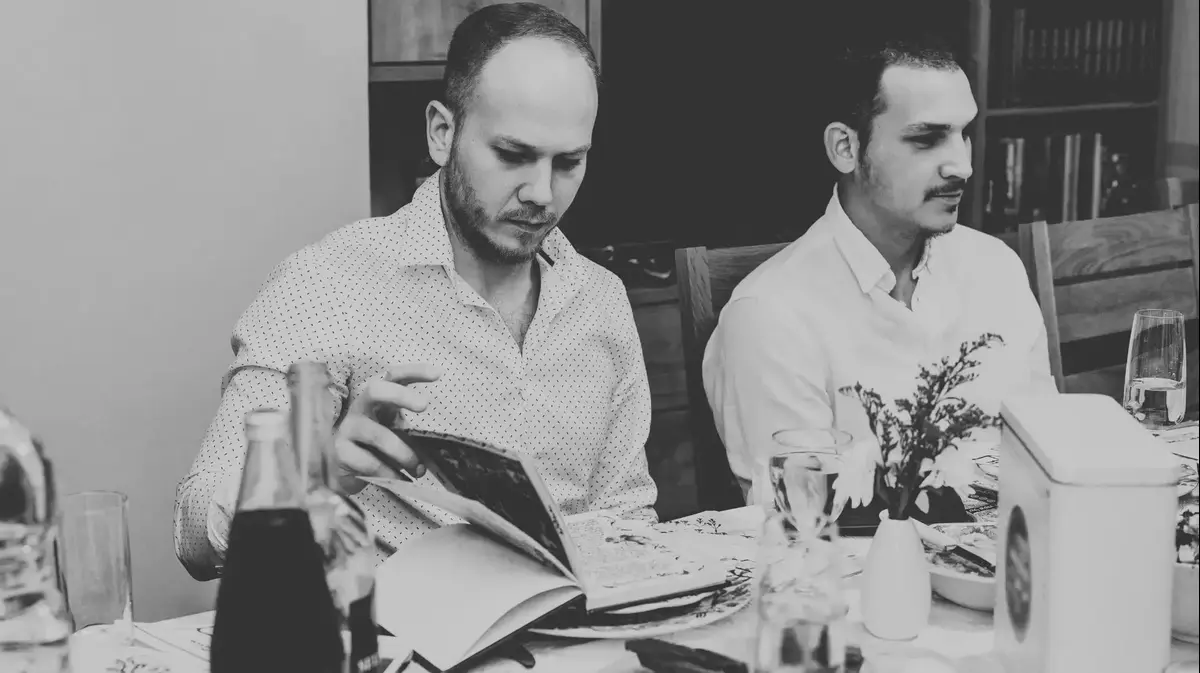The threats of refusal are already out.
You will find them in the opinion pages of certain newspapers and in eloquent posts on social networks, including a shell of ideological and conscientious reasoning on behalf of opinion makers and experts.
If there is a phrase that fits the description of the fast track to the disintegration of the state, it is a slippery military slope.
Politicians in the present and in the future play like children with concepts from the field of civil disobedience, refusing an order, simulate processes, compare Netanyahu to Erdogan and make speeches in public squares about dictatorship.
It is clear that such ideas, however half-baked and simplistic, will permeate.
Ehud Barak and Yair Lapid should not explicitly preach to refuse an order.
They just need to imply that the elected government has no moral legitimacy to send "our children" to fight for Ben Gvir and Smotrich, and loudly call for resistance that was never seen here.
A sane state system responds to this kind of discourse quickly, and strategically.
The president, the former defense ministers, the veterans of the General Staff and the heads of the defense establishment should not be silent in the face of protest cells based on military identity. They should not be silent in the face of reservists' letters and petitions of pilots and armored personnel carriers, nor should they smile at the sight of tanks being carried.
What all these projects have in common is the political exploitation of the symbols and values associated with the IDF ethos. They also demonstrate the less glamorous side of the value of evil: if a comrade in arms goes out to protest, then the guys band together to help.
What would Weizmann do?
One way or another, the politicization of the IDF - as a social institution, not as an organization - is a fait accompli. Also of the Shin Bet, by the way.
It began when five former chiefs of staff posed together against the backdrop of Ben-Gurion's tomb for a "celebratory" television broadcast to spread propaganda against a political opponent - and it ends with explicit calls for resistance to a government that should not be accepted. Now some are shrugging their shoulders. It is not certain that it is possible to go back .
Not only was this discourse not blocked in Ibo by an impenetrable wall of placing a red line - it even received symbolic confirmation.
Although everyone condemns "illegal chants" in loose language, they justify the mental state of the protestors.
It is a consensus that "the government is tearing the people apart" and that "Netanyahu is leading to a fratricidal war" - and not those who react by sowing panic and breaking tools.
Demonstration against the reform, photo: Oren Ben Hakon
What could have stopped the slide is a leadership act of the type taken by former President Ezer Weizman, in the summer of 1995, in the weeks preceding the signing of Oslo II.
Yesha's rabbis published a halachic objection to the evacuation of settlements and bases, thus qualifying as a refusal of an order. The president immediately responded with a media warning of the "danger of fratricidal war". A group of rabbis requested to go to Jerusalem, to the president's house, to try to talk and explain the public's crisis of conscience. Weizmann canceled the meeting And he did not let them inside the president's house, and they remained ashamed in front of a closed gate. There is no and will not be a conversation with them. The message echoed assertively: this rope cannot be broken.
What is happening today is the opposite.
It is not the forms of statehood that are marked as responsible for the danger of "fraternal war" - but the government.
No one will close the door to figures like Ehud Barak, Yair Golan or Moshe Bogi Ya'alon, whose operative conclusions lead exactly there.
And just as soon as some statement is needed that will bring the event into proportion, there will be some former Shin Bet chief who will stand in front of the microphone and explain that they are actually right, that the dictatorship is indeed on the way. There is always another former major general who explains that if there is a dictatorship, it is better to be mercenaries in Uganda.
The serious phenomenon of encouraging conditional loyalty and leniency to threats of refusal is a symptom of a more serious problem that rests on the shoulders of Israel's political culture: its blatant militarism.
A speech by the former head of the Shin Bet or a letter from service retirees is enough to cause moral panic. It doesn't matter what they write or say, the Sha'abers. It's always the same rhetorical powder whose constant ingredients are: statehood. We who fought for the state. A stretcher. Israel first of all A danger to Zionism. The social fabric. We are worried.
refused to enter.
Weizman, photo: Moshe Shay
We will have to give up on that too
The protest against the reform advanced Israel another step on the road to cultural militarism;
The same blindness of dimensions and steps.
The basic assumptions regarding democracy are formulated these days by the aristocracy of the security establishment, and many in the civil society accept its senior figures as the guardians of democracy.
If there is one thing that protects Israel from slipping into militarism, the great sociologist Prof. Moshe Lisk once said, it is the fact that the army and the security establishment do not pretend to regulate social norms and serve as the value compass of society.
And this happens, according to him, because social pluralism and political diversity exists at the top of the army and the security system in Israel.
This group cannot, apparently, speak with one voice.
This is how Lisk saw things in the late 1990s;
It is difficult to sign such an analysis today.
In recent decades, perhaps as an internal reaction to demographic processes that are well felt in the IDF, the security elite in Israel strives for ideological homogeneity and applies social sanctions against disobedients. Can, for example, a group of pilots supporting reform be formed in the current climate? Social pressure is also exerted on members of the "Securityists" movement. who came together to establish a conservative-Nitzy security voice, if only to balance phenomena such as "Commanders for Israel's Security", not to mention Avi Dichter or Yoav Galant.
It is easy to get caught up in the style of Knesset members like Amsalem or Almog, or the "powers" of Rotman and Levin, as indications of the destruction of statehood and the creation of a rift in the people.
But the real, most threatening crack is currently being opened by those who claim to be the ultimate presenters of Israeliness and statehood.
We will have to wean ourselves from this too;
Maybe this time it will be easier.
were we wrong
We will fix it!
If you found an error in the article, we would appreciate it if you shared it with us















